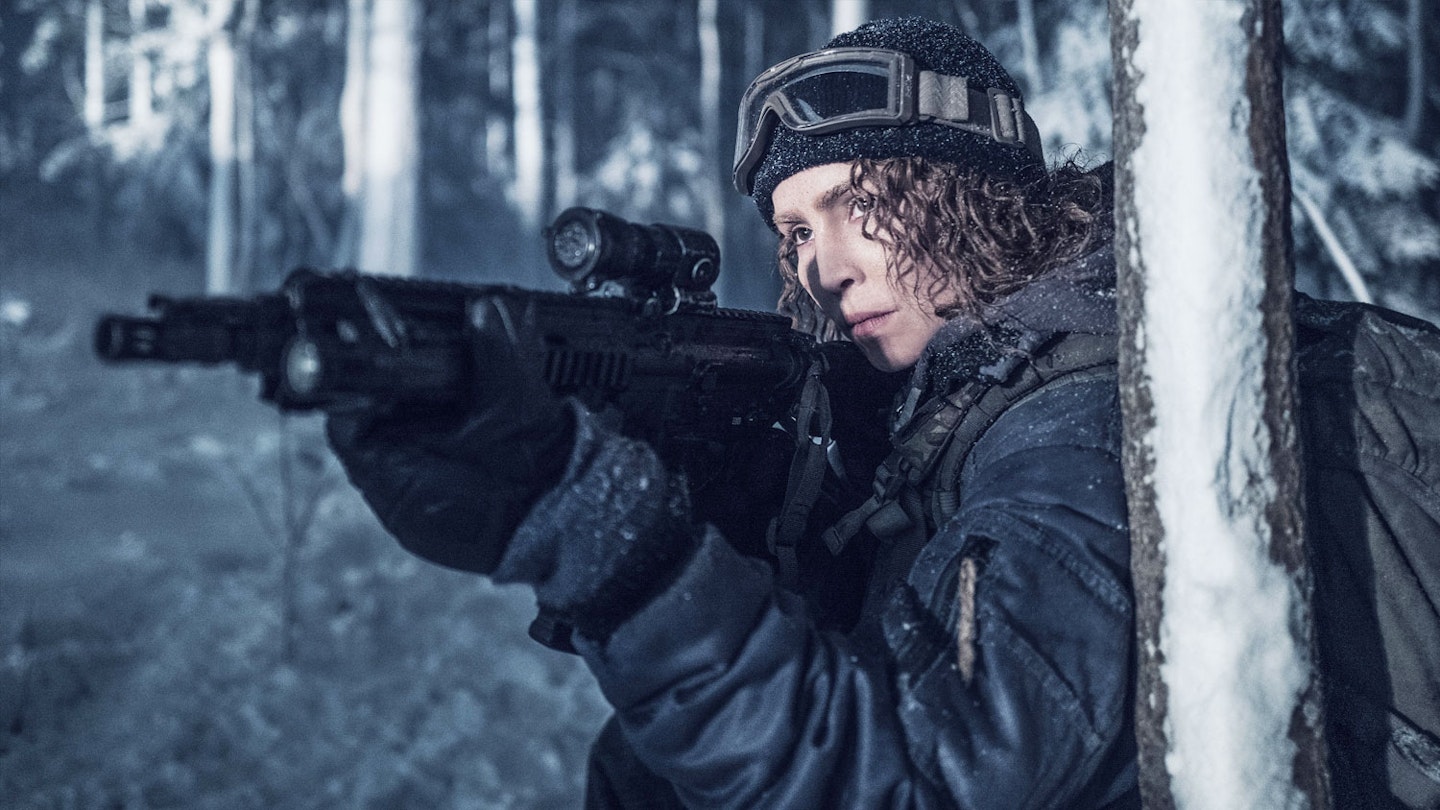Black Crab starts off with a bang. We’re in a car in a tunnel in Sweden, with Caroline (Noomi Rapace) and her daughter Vanja (Stella Marcimain Klintberg), listening to the radio and looking back on a karaoke session. When the sound of heavy gunfire breaks out, people start running, and Vanja is taken by a bunch of soldiers in black balaclavas. It’s a terrifying first scene, establishing a level of tension that the rest of the film unfortunately fails to reconjure.
Cut to an unknown length of time in the future, and Caroline is a soldier in a war against an unknown ‘enemy’ (the only way the opposing force is ever referred to). She is summoned by her superiors to carry out a very important mission — joining a team of five other soldiers to transport two mysterious, not-to-be-opened canisters to a research base. The tricky bit? It requires going behind enemy lines, and skating across an enormous, ice-covered archipelago.

The problem with Black Crab is that it feels more like an idea for an image — soldiers skating across a shedload of ice — which then had to be fleshed out with characters and setting and a plot that could get us to that place, rather than a fully-formed story. As inherently high-stakes as the perilous icy setting is — and there are some well-executed precarious moments — the film around it doesn’t hold up. The characters are paper-thin (the defining character trait of Rapace’s protagonist seems to be simply that she is a mother), the conflict they’re fighting in is totally unexplained, and the precious cargo, framed as The One Thing that could end the war, is laughably simplistic. It heaves under the pressure of trying to weave in larger themes, particularly in the third act — but these too are underdeveloped, and lead to an entirely unnecessary and unearned final 20 minutes.
Rapace is solid, as always; Caroline is steely under pressure, more than a match to the men surrounding her, and ruthless in doing what it takes to bring her daughter back to her. She does what she can to bring dimension to the character, remaining watchable despite doing so from beneath a baffling wig of corkscrew curls.
There are flickers of brilliance from debut feature director Adam Berg: shots of the team skating — silhouettes against fiery explosions at the base they’re leaving behind — are impactful; one scene where they come across horrors frozen beneath them is a true gut-punch; and the action set-pieces are all effective. But the script he co-wrote, based on a novel by Jerker Virdborg, simply can’t support them.
